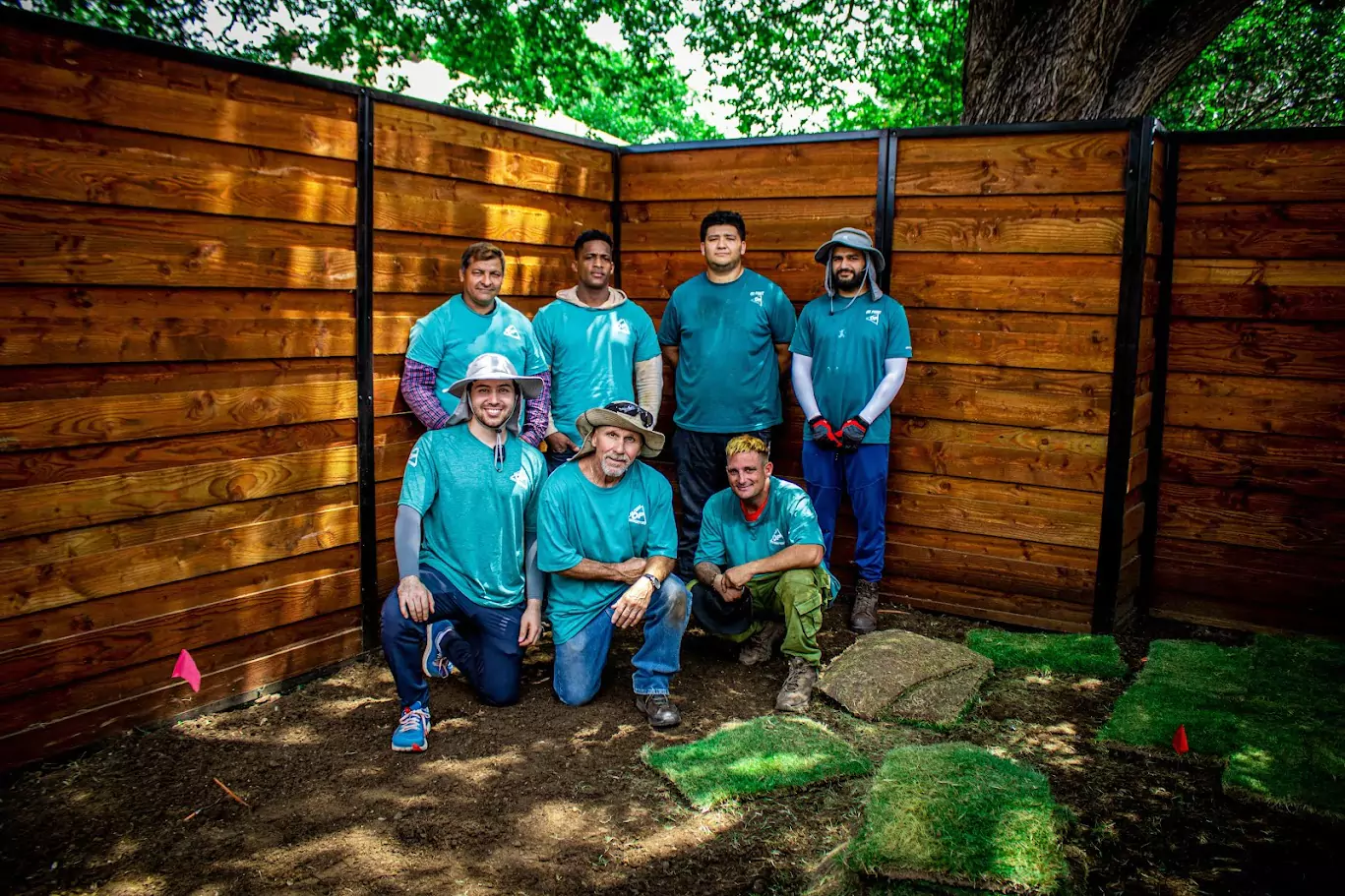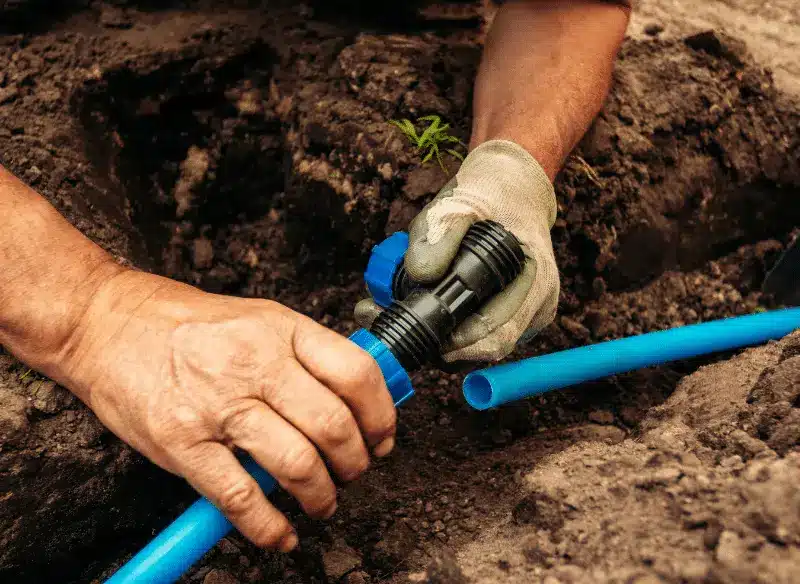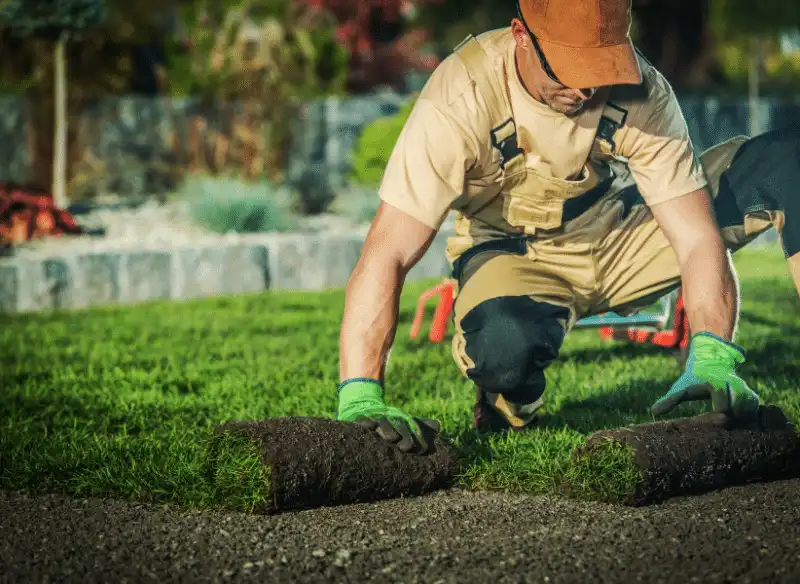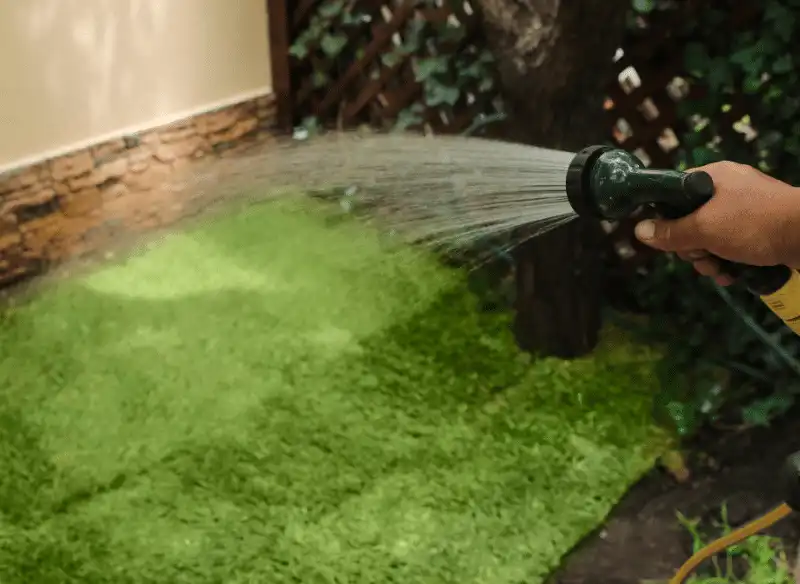Choosing the right contractor can feel overwhelming, especially with so many options in the Dallas-Fort Worth area. Whether you’re hiring for a new fence, fresh sod, or an irrigation system, doing your homework helps ensure the project runs smoothly and lasts.
Here’s a guide to finding the right contractor, with tips for asking the right questions and avoiding common pitfalls.
Deciding on the Level of Service You Need
Your first step in choosing a contractor is deciding the level of service that fits your needs and budget. Here’s a quick breakdown of your options:
- DIY: Budget-friendly but labor-intensive. DIY is doable but requires experience with tools and materials, especially for fencing, sprinkler, and sod installation.
- Owner-Operator: A small, often one-person operation. You’ll typically work directly with the owner, which can mean lower costs and personalized service but sometimes limited resources.
- Established Company: Larger companies offer dedicated crews, project managers, and established processes, often with higher costs. If you want peace of mind and the ability to meet tight timelines, this can be worth the investment.
DIY
Owner Operator
Established Company
Due Diligence Checklist Before Hiring any contractor:
Reviews and recommendations
- Check google reviews (google is the most used search engine. Be wary if a company doesn’t show up on google)
- Ask for recommendations: your friends and family may know a good contractor
References
- Ask the company for references on previous projects
- Video testimonials are good too
Visit completed projects
- If possible, visit a completed project near you that the company you are researching has completed
Check Insurance
- Get the company to send you a copy of their liability insurance and commercial auto insurance
Experience and expertise
- Ask what your installer specializes in. Too many services can be a red flag. In fencing for example, there is a big difference between installing wood fencing vs wrought iron vs vinyl vs chain link vs ranch style fencing, etc… Also, be wary of a installer who also does many other services.
- Ex: if one company does all of these: do tree trimming, mow lawns, decking, pergolas, general landscaping, and fencing. This can be a sign they aren’t specialized enough.
- Ask how many years in business. But remember – 30 years in business doesn’t necessarily mean they are good.
Review portfolio
- Look at pictures and videos of their previous work
Evaluate their professionalism and communication
- Do they answer the phone
- Do they show up when they say they are going to
- Are they in constant communication with you or do you have to constantly reach out to them
- Do they have company uniforms
- Are they branded with a company name and logo
- Do they provide a professional looking quote?
- DO they provide the quote quickly or do they take multiple days? (this can mean they’re either too busy or don’t know what they’re doing)
Check contract details and warranty
Discuss timeline
- Make sure the installer can install around when you need your project completed
Key Questions to Ask All Contractors Before Hiring them, that you might not have thought of:
When asking these questions, really pay attention to their body language and voice. They should be confident in their answers if they’re telling the truth.
Let’s go over the best questions to ask to weed out the bad apples…
What is your official business name and what is the business classification?
- Ideally they have an LLC, S corp, or C corp. You can look up their business name on the Texas secretary of state website here: https://direct.sos.state.tx.us/acct/acct-login.asp
- Keep in mind you need to create an account, and pay $1 per search.
- This site will tell you whether the business exists, who the owners are, the date it was established, and more!
- This information can be VERY valuable. You can use it to see if they’re a legit company, and if their other documents (like insurance) match up to their business information or not.
Do you have addresses of similar jobs to mine that I can look at?
- The more they give you, the better – this means they actually have a lot of experience.
- It also shows that they are organized if they are able to provide it to you relatively quickly.
Can I see your commercial auto insurance policy?
- A lot of contractors will get general liability, but a lot skimp on the commercial auto.
- If the contractor has commercial auto insurance it’s a good sign that they are established, and take care of their employees.
- Commercial auto is much more expensive than personal insurance so a contractor willing to pay for this is a good sign.
Do you use subcontractors? If so, can I see their general liability and their commercial auto?
- Using subcontractors is perfectly fine when done correctly, but if something happens to one of their crew members on your property, you don’t want to be the one getting sued. Make sure the subs have insurance too.
Key Questions to ask your Fence Contractor before hiring them:
What type of cedar do you use for the pickets and for the rails?
- There are different types of cedar, and you want to make sure your contractor isn’t trying to save a buck by getting you the cheapest one.
- Asking them this question will put them on alert that you know what you’re talking about, so they’ll be more likely to get you the wood you want.
- Western Red Cedar is the best, Japanese cedar is good, and don’t bother getting anything else.
- More on different woods used for fencing here
How do you install your fence posts, and what gauge do you use?
- The Fence posts are the most important part of the fence. It’s important to install these deep enough and with enough concrete. Skimping on the posts is an easy way for contractors to reduce cost, and leave you with leaning posts in the future.
- For a 6 ft tall fence: Posts should be 2 feet deep, and 8 foot apart. For an 8 ft tall fence the posts should be 3 feet deep and 6 feet apart.
- The gauge (thickness) should be 11 gauge or thicker for 8 feet tall fences, and ideally 14 gauge or thicker for 6 ft tall fences (the lower the gauge number the thicker the post).
How much concrete do you use for your posts?
- If installing 2-⅜” Steel posts, 80 lbs for 6 ft tall fences and 120 lbs for 8 ft tall fences is a good amount.
- Many will install less than half those amounts to save money.
Key Questions to ask your Sod Installer before hiring them:
What is your installation process?
- It should be something similar to: “remove vegetation (weed wacker), till the soil, taper edges, add topsoil, and smooth the area. Lay sod in tight staggered rows, watering while we lay, cut edges, and finish by soaking and rolling the lawn with a 250-pound roller for even rooting.”
- The most important part is that they remove the existing vegetation, and that they do a thorough rototilling of the soil.
- Click here for more on how to install sod
Do you take care of sprinkler issues and raise sprinkler heads?
- If your sod installer doesn’t do sprinklers, don’t use them. They should at least be familiar with the basics: raising sprinkler heads, adjustments, and programming your sprinkler controller.
- They should also do all the above at no extra cost – it’s apart of a successful sod installation.
It’s a major green flag if they have an Irrigators License
How do you take care of drainage issues?
- Poor drainage can ruin sod, so it’s crucial the contractor assesses and addresses any grading issues to prevent water pooling and promote healthy growth.
What is the ideal pH level for sod?
- It depends on the sod type, but around 5.0 to 7.5 (slightly acidic to neutral) is what’s recommended.
- Use this question to test your installer’s knowledge. If they know their stuff they should be able to get you the right answer.
Key Questions to ask your Lawn Sprinkler Contractor before hiring them:
How will you design the sprinkler zones for my yard?
- Big Green flags if they mention: “Head-to-head coverage”.
Who is the licensed irrigator and what is their license number?
- TCEQ (Texas Commision on Environmental Quality) requires all irrigation systems to have a licensed irrigator involved with the installation of new systems, or at least overseeing a licensed technician (lower level license) who is present during installations and/or repairs.
- You can look up the irrigator by name or license number on the TCEQ website: https://www2.tceq.texas.gov/lic_dpa/index.cfm?fuseaction=licall.searchindiv
If you ask these questions, and go through the checklist above, you’ll more than likely weed out all the bad apples and find a great contractor to work with.




